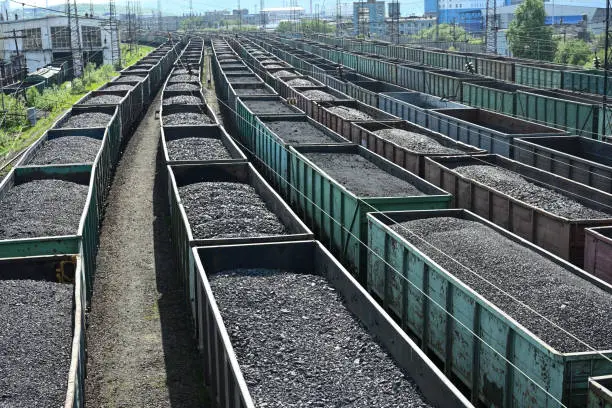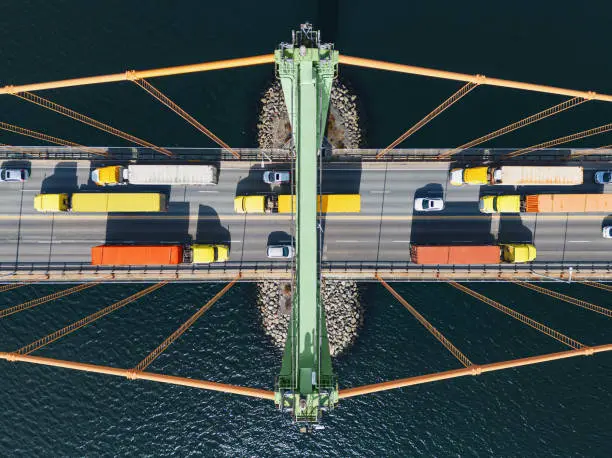
Unlocking the Global Supply Chain: The Dynamics of Freight Transportation
- Admin
In the intricate web of global commerce, freight transportation emerges as the linchpin connecting producers, suppliers, and consumers across continents and oceans. From the movement of raw materials to the delivery of finished goods, freight transportation plays a pivotal role in facilitating trade, driving economic growth, and shaping the modern supply chain. In this article, we embark on a journey to explore the multifaceted world of freight transportation, uncovering its significance, modes, challenges, and its indispensable role in powering the global economy.
Significance of Freight Transportation:
Freight transportation serves as the lifeblood of the global economy, enabling the movement of goods essential for industrial production, consumer consumption, and international trade. With the globalization of supply chains, businesses rely on freight transportation to source raw materials, deliver components, and distribute finished products to markets worldwide. From container ships navigating the high seas to trucks traversing highways and trains chugging along railways, freight transportation encompasses a diverse array of modes and logistics operations that underpin the efficient flow of goods across supply chains.
Modes of Freight Transportation:
Freight transportation encompasses various modes tailored to different types of cargo, distances, and logistical requirements:
Maritime Shipping: Maritime shipping transports the majority of global trade, carrying goods in containers, bulk carriers, and tankers across oceans and seas. Ports serve as crucial hubs for maritime transportation, facilitating the loading and unloading of cargo between ships and land-based transportation networks.
Road Transport: Road transport involves the movement of goods by trucks, vans, and other vehicles on highways, roads, and urban streets. Road transport provides flexibility, accessibility, and door-to-door service, making it ideal for short to medium-distance shipments and last-mile delivery.
Rail Freight: Rail freight transports bulk commodities and containerized cargo over land, utilizing railway networks and intermodal terminals to connect production centers, distribution hubs, and ports. Rail freight offers cost-effective, fuel-efficient transportation solutions for long-distance shipments.
Air Cargo: Air cargo provides rapid transportation for time-sensitive goods and high-value commodities, utilizing cargo aircraft to deliver goods quickly across continents and countries. Air cargo is particularly suited for perishable items, electronics, and pharmaceuticals requiring fast transit times.
Challenges in Freight Transportation:
Freight transportation faces several challenges that impact its efficiency, reliability, and sustainability:
Infrastructure Constraints: Inadequate transportation infrastructure, including ports, roads, railways, and airports, can lead to congestion, delays, and increased transportation costs for businesses.
Regulatory Compliance: Freight transportation is subject to a complex regulatory framework governing safety, security, emissions, and customs procedures. Compliance with regulations imposes administrative burdens and operational constraints on freight operators.
Environmental Impact: Freight transportation contributes to environmental pollution and carbon emissions, primarily from fuel consumption and exhaust emissions. Efforts to reduce emissions and mitigate environmental impact through technology adoption and sustainable practices are essential for the long-term sustainability of freight transportation.
Supply Chain Disruptions: Disruptions such as natural disasters, geopolitical events, and pandemics can disrupt freight transportation networks, leading to delays, shortages, and supply chain disruptions for businesses and consumers.
Conclusion:
Freight transportation serves as the backbone of global trade and commerce, providing the essential linkages that connect producers, suppliers, and consumers worldwide. Despite facing challenges such as infrastructure constraints, regulatory compliance, environmental impact, and supply chain disruptions, freight transportation continues to evolve and innovate, driving efficiency, reliability, and sustainability in the global supply chain. As societies and economies continue to evolve, the importance of freight transportation will only grow, reaffirming its indispensable role in powering the global economy and facilitating the movement of goods essential for human progress and prosperity.
